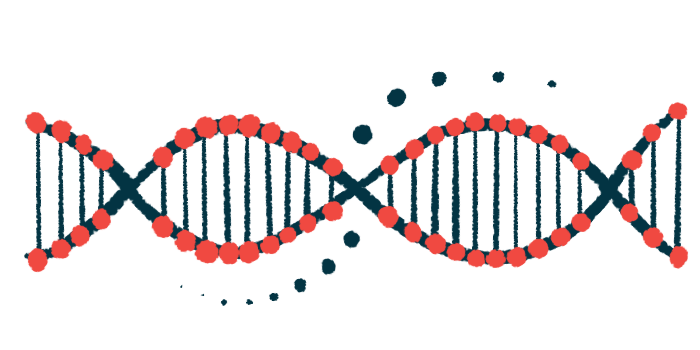Genetic factors influencing ALS survival identified in Japanese study
Researchers hope this may lead to more personalized medicine for patients
Written by |

Researchers have identified new genetic variants that might influence survival among sporadic amyotrophic lateral sclerosis (ALS) patients in Japan.
Genetic analyses in more than 1,000 ALS patients uncovered that small changes in the FGF1, THSD7A, and LRP1 genes could affect patients’ prognosis. In patient-derived nerve cells, the identified variants led to low gene activity and reduced cell survival.
“The identification of genetic factors associated with the survival of patients with ALS and the development of patient-derived cellular models that reflect these factors could contribute to the formulation of targeted therapy for ALS,” researcher wrote.
The study, “Genetic factors affecting survival in Japanese patients with sporadic amyotrophic lateral sclerosis: a genome-wide association study and verification in iPSC-derived motor neurons from patients,” was published in the Journal of Neurology, Neurosurgery & Psychiatry.
Mutations in more than 40 genes have been linked to familial ALS, or ALS that runs in families. On the other hand, in most cases of sporadic ALS, or those without a known family history, a disease-causing mutation hasn’t been identified.
Still, studies indicate that small genetic variations, called single nucleotide polymorphisms (SNPs), can influence disease prognosis and survival in these patients.
Genetic factors in Asian patients have not been identified, scientists say
SNPs refer to genetic changes that only affect a single nucleotide, or DNA building block. They are the most common type of genetic variation seen in humans, including in healthy people. While they typically don’t directly cause disease on their own, they can influence disease risk, disease manifestations, or prognosis.
Most studies evaluating SNPs linked to ALS prognosis have been performed in white populations, so the genetic factors influencing survival among Asian patients have not been identified, according to the scientists.
In the study, the Japanese Consortium for Amyotrophic Lateral Sclerosis Research (JaCALS) study group, which included researchers from multiple Japanese centers, performed a genome-wide association study (GWAS) to look for genetic contributors to survival among 1,076 patients with sporadic ALS in Japan.
GWAS studies examine a large number of genes — in a large number of patients — looking for relationships between SNPs and an outcome of interest, which in this case was survival.
Ultimately, they identified SNPs in three particular genes — FGF1, THSD7A, and LRP1 — that were significantly associated with survival outcomes in ALS patients.
Variants in other genes, such as CAMTA1 or IDE, that had previously been found to influence survival in white patients, were not associated with survival among the Japanese individuals.
“Genetic factors that affect the prognosis of Japanese patients with ALS may differ from those of Caucasian patients with ALS,” the researchers wrote.
To learn more about the effects of these SNPs, the researchers generated motor nerve cells from reprogrammed blood cells isolated from patients with the different variants.
Certain SNPs associated with reduced gene activity
In these motor neurons, which are the nerve cells that are damaged in ALS, they found that certain SNPs in FGF1 and THSD7A were associated with reduced gene activity, as well as reductions in cell survival.
Genetic manipulations to reduce FGF1 or THSD7A in nerve cells derived from healthy adults similarly led to cell death and reduced survival.
FGF1 is a gene involved in nerve cell growth and development. Mutations in the gene have been previously linked to a range of neurological diseases. Given that the SNP identified in this study seemed to reduce FGF1 activity and negatively affect survival, “FGF1 may have a beneficial effect on the survival of patients with ALS and may be a therapeutic target to improve prognosis,” the researchers wrote.
The potential role of THSD7A in ALS is less clear, according to the team, who noted “further research is warranted.”
Ultimately, the scientists believe their findings will contribute to developing better therapies for ALS patients.
“Given the diversity of patients with sporadic ALS, it is necessary to develop a system of personalised medicine,” the researchers wrote.
They added that the use of patient-derived nerve cells to more closely study genetic variants identified in GWAS studies “may serve as a breakthrough model for the development of personalised medicine for patients with ALS.”






